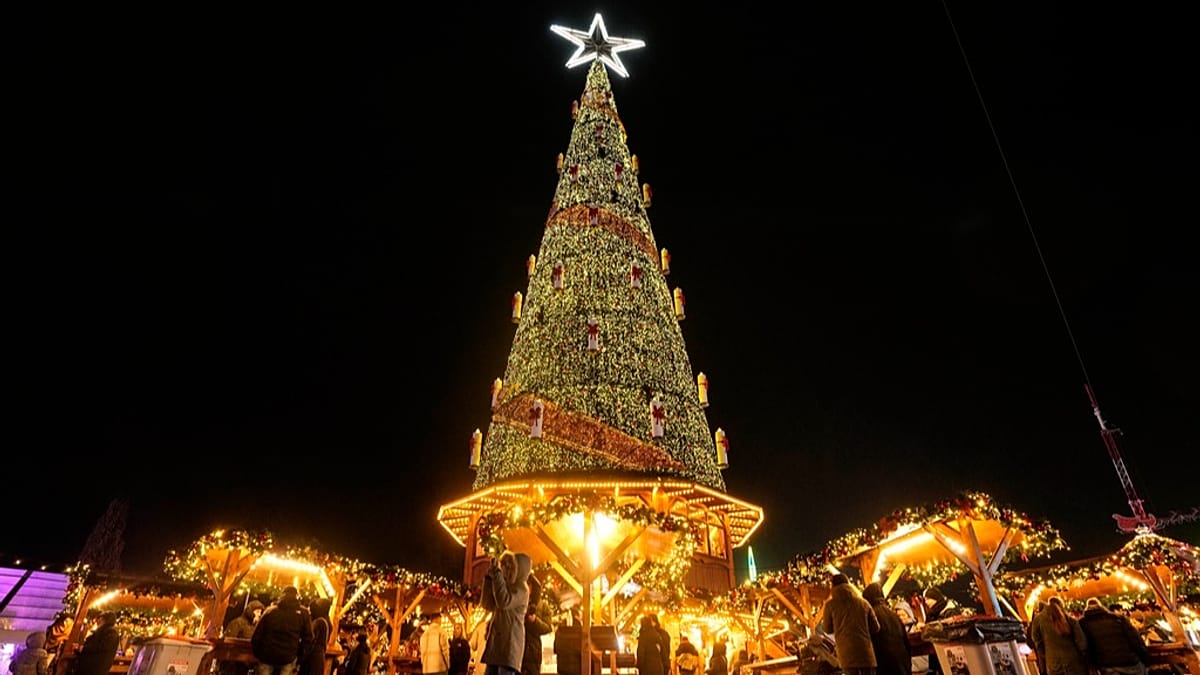
It might still be too early for some, but with Halloween over, Christmas is well and truly on the way, and a wave of misinformation about the festive season is also on its way.
A picture going around online and shared on social media in multiple European languages, allegedly shows a small German Christmas market surrounded by police, vehicles and fences.
The captions shared with the photo lament that Christmas markets in Europe now have to be so heavily protected from terrorist attacks, with some baselessly blaming immigration or “diversity”.
However, the image has clearly been AI-generated: zooming into people’s faces, and text like the vehicles’ registration plates, shows that they are blurred and distorted.
Additionally, in the bottom right-hand corner of the picture, we can just about see the logo of Gemini, Google’s AI assistant, proving that it was artificially created.
Those sharing the photo appear to want to whip up fear off the back of real attacks that have targeted German Christmas markets in the past, such as the attack in Berlin in 2016 and the attack in Magdeburg last year.
The former saw a terrorist drive a lorry into the market, killing 12 and leaving more than 50 injured, while in the latter, a man drove an SUV into the crowd, killing six and injuring more than 300.
The incidents have also sparked other misleading narratives related to the markets, most notably false claims that Germany is cancelling all its Christmas markets due to fears over immigration and terrorism.
We can easily check this by visiting the tourism office websites belonging to the cities where Germany hosts some of its most iconic markets.
The city of Cologne, for example, whose Christmas markets welcome around 4 million people a year, is still clearly preparing to celebrate the festivities from mid-November.
The same is true of Frankfurt, which clearly indicates the dates its market will be open.
To be sure, both cities confirmed when contacted by The Cube that they will be hosting their Christmas markets as well.
Unfortunately, some German Christmas markets will indeed be closed this year, but not due to concerns over potential terrorist attacks.
Visitors to the popular market in Dortmund’s Bodelschwingh Castle will have to wait until 2027 to celebrate as, according to its website, the castle is undergoing repairs.
Elsewhere, market operators in Rahlstedt have cited diminishing returns as a reason for cancelling their market, as stallholders failed to make enough money to justify holding the market again.
Despite the news of some smaller markets being shut down for various reasons, the vast majority in Germany will still go ahead, complete with comprehensive, reasonable, and often increased security measures. These include things such as erecting concrete barriers, hiring extra security staff and conducting bag checks.
